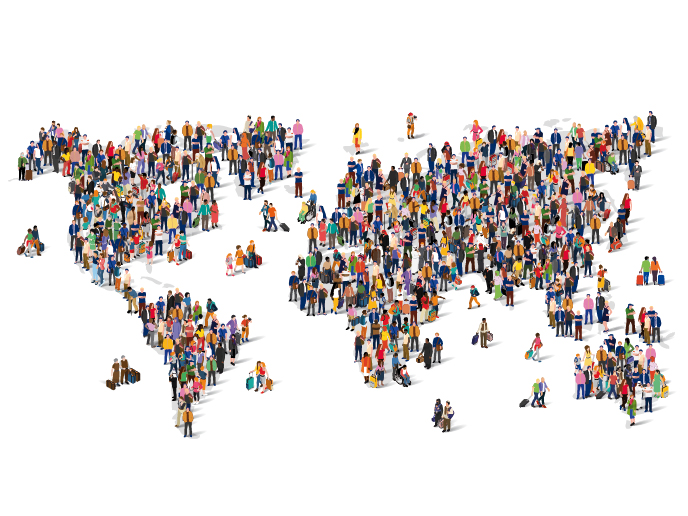Migration: New tools and perspectives to understand movement in Europe
Since time immemorial, humans have travelled from one place to another in search of safety, security, opportunity and prosperity. Yet the rapid increase in the number of people seeking refuge in Europe in recent years has exacerbated fears of social and economic repercussions. The multifaceted nature of migration refuses easy classification. There is tremendous variety in both those who become expatriated – including refugees, asylum seekers and economic migrants – and the forces that drive and shape these migration flows, encompassing civil unrest, climate change, financial incentives, legal structures, language, family and cultural connections, demographic patterns, and economic models reliant on the movement of people, such as seasonal work and remittances. Far from being a problem to be halted, the flow of people across borders presents both opportunities and challenges that must be addressed by European policymakers. The arrival of migrants can help fill labour shortages, revitalise dwindling communities and regions, and provide labour for skilled and unskilled positions that would otherwise remain unfilled. If not managed properly, migration can also create uneven pressures on social services, and without supportive programmes to facilitate integration, social cohesion can become frayed and migrants left vulnerable to isolation and exploitation. Understanding the nature of migration is essential if Europe is to effectively respond to both its positive and negative outcomes. The 13 EU-funded projects presented in this Pack reflect the broad manner of ways in which researchers are supporting Societal Challenge 6 of Horizon 2020: ‘Europe in a changing world – Inclusive, innovative and reflective societies’. The aim of this Pack is to contribute to a more evidence-based debate on the different aspects of the migration phenomenon. It provides succinct summaries of the main insights from the projects, to support the activities of an intended audience of academics, policymakers, CSOs and interested citizens. Together, these research projects offer new insights into the phenomenon of migration, and how Europe can respond effectively to it for the benefit of all. The Pack presents a selection of EU-funded research projects on migration which developed sound evidence, reliable data and analyses that can be fed into policymaking processes in different areas, from migration management to migrants’ integration, or improving coherence between migration and other policies. Many of the projects also developed very concrete tools and solutions to improve the day-to-day practice of migration management, which can have tangible impacts on migrants’ lives and social cohesion. ADMIGOV and ASILE cover migration and asylum governance systems, exploring alternatives to current policies and the notion of crisis in the field of migration and asylum. TRAFIG and RAISD investigate solutions to mitigate protracted displacement situations, including for particularly vulnerable migrants. AGRUMIG looks at the nexus between migration and development in countries of origin and transit of migrants. SPRING, MERGING and MATILDE explore different aspects of migrants’ integration, ranging from socio-economic effects of migration within Europe to improved housing for immigrants. EASYRIGHTS and MICADO address the challenge of migrant integration through ICT-enabled solutions. Finally, HumMingBird, QuantMig and FUME provide a better understanding of migration mobility patterns and advance knowledge towards the elaboration of better mid and long-term migration scenarios.



